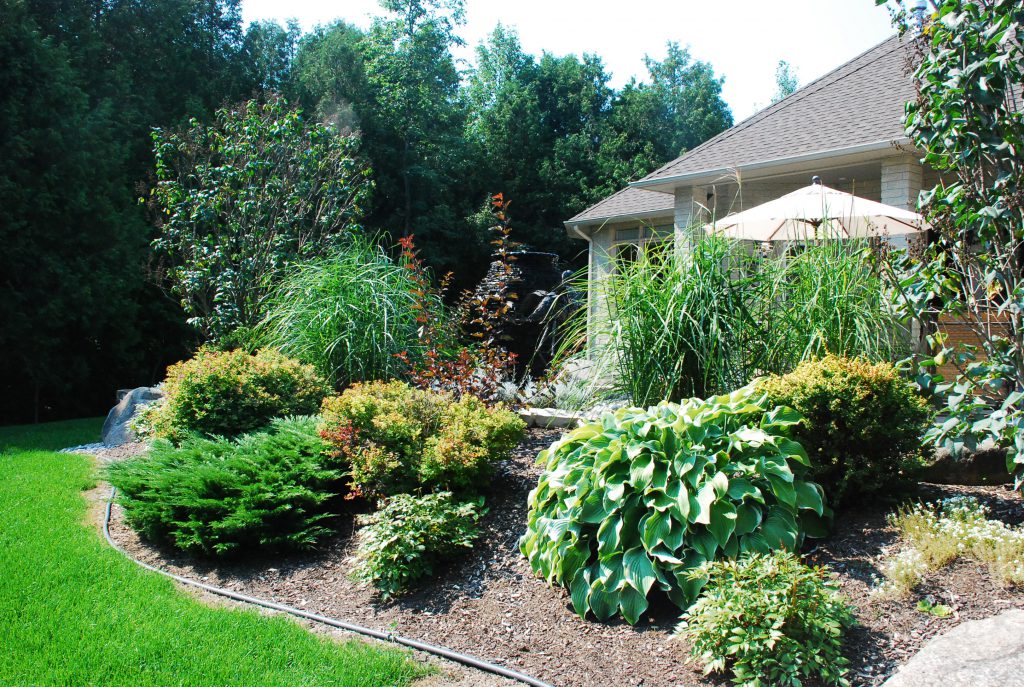What are the benefits of using Mulch?
First of all, what is mulch? Wood mulches are derived from debarking cut trees. The stripped bark is processed through a grinder and shredded. Due to the variability of the tree types, bark mulches fluctuate, each having their own individual effect. Some mulches provide the soil with nutrients, slowly releasing the nutrients as the mulch decomposes.
When applying mulch, we recommend a total depth of 3" which will allow all the benefits of restricting weed growth, yet still allow water to access the soil.
Benefits of mulch on plants and soil:

- Mulch prevent loss of water from the soil by evaporation.
- Mulch reduces the growth of weeds when applied deeply enough to prevent weed germination or to smother existing weeds.
- Mulch keeps the soil cooler in the summer and warmer in the winter, thus maintaining a more even soil temperature.
- Mulch prevents soil splashing, which not only stops erosion but also keeps soil-borne diseases from splashing up onto the plants.
- Mulch can improve the soil structure. As the mulch decays, the material becomes topsoil. Decaying mulch also adds nutrients to the soil.
- Mulch prevents crusting of the soil surface, thus improving the absorption and movement of water into the soil.
- Mulch prevents the trunks of trees and shrubs from damage by lawn equipment.
- Mulch helps prevent soil compaction.
- Mulch can add to the beauty of the landscape by providing a cover of uniform color and interesting texture to the surface.